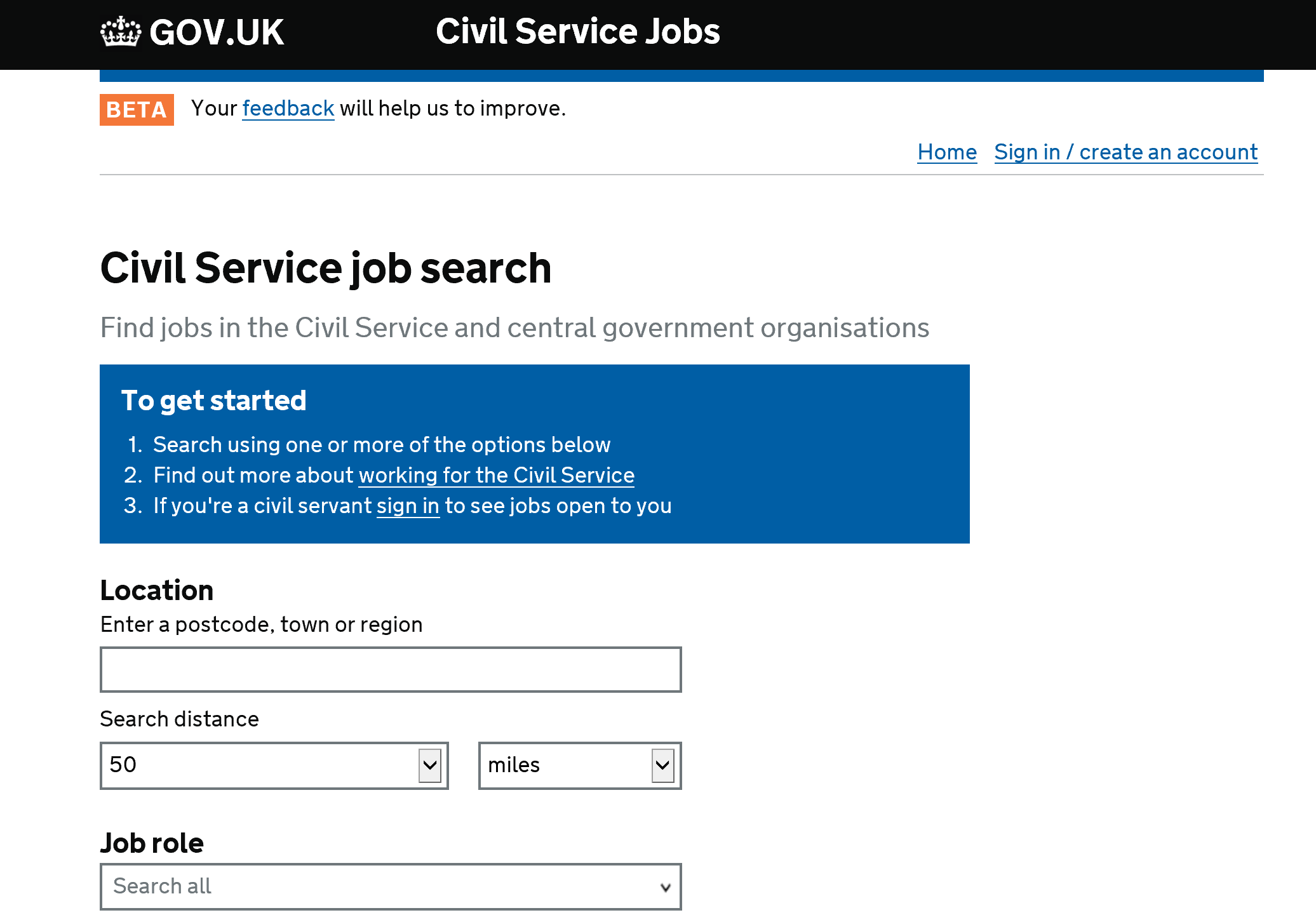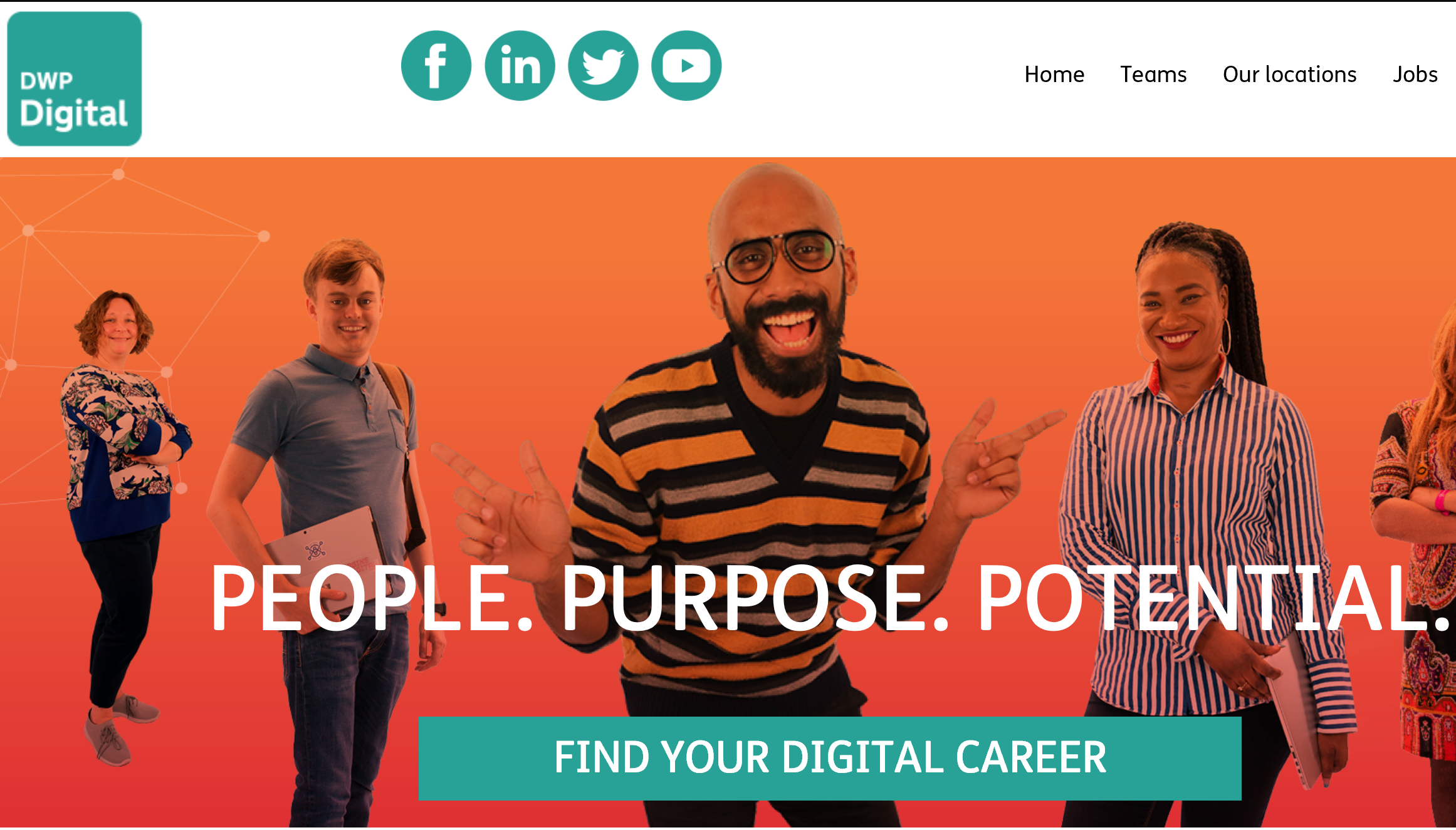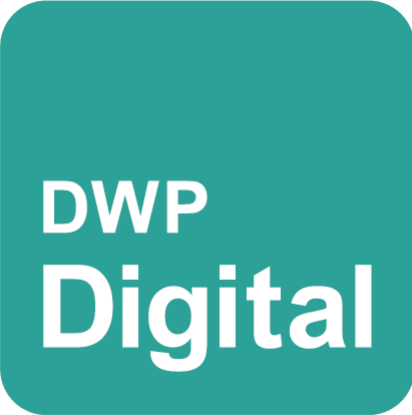
In this blog post I’d like to help you to apply for one of our exciting vacancies.
Register on Civil Service Jobs
Do you want to receive information on our latest specialist vacancies?
The first thing you’ll need to do is register on the Civil Service Jobs website, which will allow you to sign up for job alerts, save your applications and feedback in one place.
You can create an account from the Civil Service Jobs website homepage. From there, you can select preferences so you receive tailored updates and vacancy alerts to suit you.
Once registered you’ll have several options. Clicking ‘Home’ will take you directly back to the main screen where you can search for roles. Clicking ‘Applications’ will take you to your current applications where you can track any you have submitted. Clicking ‘Job alerts’ will allow you to create personalised alerts. And clicking ‘Account setting’ will let you edit your details or close your account.
If you’ve found a job you want to apply for, it’s time to move on to the application process.
Curriculum Vitae
The vast majority of Civil Service jobs now ask for a Curriculum Vitae (CV) and Personal Statement. When completing your CV, ensure you highlight all your key career achievements. Focus on the impact it had on both you, the company and the customers that the company serves.
Concentrate on your most recent experience and don’t go back further than 10 years. Start with your highest ranking qualification first and list any key skills you have that are relevant to the role you are applying for.
For more information, read Tia's Getting hired at DWP Digital: CV tips blog-post.

Personal statement
The personal statement is your chance to showcase your experience in more detail relating to the key criteria outlined in the advert. Make it crystal clear how you meet each criterion or how your skills can be transferred to meet it. Take time to draft some ideas, using some of your key achievements and challenges you’ve overcome.
Think about why you’re suitable for the role and why we should be interested in you. Explain why you want the job, what you can bring to the role and the impact you could have.
Once you’ve finished, read it through, then read it through again. You need to ensure that the spelling, punctuation and grammar is perfect. Get someone else to proof read it too, as sometimes a second pair of eyes can spot something you’ve missed.
The next step
Once you’ve submitted your application, you’ll need to be patient. We’re a big organisation and we get a lot of interest in our roles. To ensure everyone is treated fairly we have a detailed sifting process which can take up to 6 weeks. If you don’t get invited for an interview, unfortunately, it is unlikely you’ll get feedback on your application. This is purely because of the volume of applications that we receive. However, don’t let that put you off, keep trying.
If you are invited for an interview, congratulations! You’ll need to log back into Civil Service Jobs and book an interview slot.
Preparing for your interview
Depending on the role you’ve applied for, you may be asked to give a presentation. If that’s the case, you’ll have a minimum of 5 working days to prepare. You’ll be given this information when you receive your invitation to interview.
My tips for your presentation:
- time yourself - normally you’ll have around 5-10 minutes
- print 4 copies - 1 for each panel member and 1 for yourself - just in case you have IT issues
- run through it in front of somebody neutral in preparation
Did they understand what you’re trying to say? Did you use technical terms or jargon that people may not understand? Presenting complex, technical information to a range of people could be part of the test.
Plan and prepare. If there are technical skills and/or behaviours being tested at the interview, details of these will be within the original job advert.
Read through the Success Profiles information especially around the expected behaviours. Try and link your examples to these. Perhaps write some ideas down and ensure you have enough to talk about. The most popular behaviour that we test is leadership. You don’t necessarily have to be a manager, but you will need to demonstrate effective leadership.
For more information read this blog-post on the criteria for a successful application.
At the interview
The interview panel is normally made up of 3 people; a chair and 2 other panellists. They will introduce themselves, go through the interview process, explain each step and how the interview will be structured.
Listen to the question. Take your time to respond, and feel free to pause for a moment to think about how you’re going to answer before speaking. The panel want to ensure you do your best and will prompt you with follow up questions if they need more.
If you don’t understand the question the panel have asked, don’t be shy about asking for clarity.
At the interview you may be asked some strength based questions. These are asked to test your initial response. A top tip is to stay focused and be positive in your answer. If the question is about something you’ve no experience with, tell the panel how you could develop that skill.
The devil may be in the detail, but at an interview, time is precious. We understand that you want to tell the panel everything you have done, especially if it’s a piece of work that you’re really proud of. So, a good tip is to use the STAR method to keep your answer focused: situation, task, action and result. Focus on what you’ve done, not your team or other people.
After the interview
If you’re unsuccessful you’ll receive an email letting you know. You’ll be able to log back into Civil Service Jobs and read through the feedback and details of how you scored. Use this feedback to improve any future applications and interviews.
If you’re successful, well done! You’ll also get your results via email, although you may get a phone call as well. You will also be able to see your scores and feedback in your Civil Service Jobs account.
Starting a new role
If you’re already an employee within the department, you’ll normally agree a start date with your new team. If you’re from another government department, pre-employment checks will be made, which can take up to 3 weeks. If you’re not currently part of the Civil Service, pre-employment checks can take up to 8 weeks depending on which department you’ll be joining, and the security checks required.
Apply now!

Good luck with your applications. We’re hiring now, check out our careers site for our latest vacancies.

11 comments
Comment by Julie Hooper posted on
Very helpful and informative, thanks Peran.
Comment by Peran Ainscliffe posted on
Thank you for your feedback Julie.
Comment by Tracy D posted on
great blog Peran with some really useful information for external candidates not used to our process
Comment by Bev Adey-Morgan posted on
Very informative blog!! As an interviewer I can't stress enough that candidates really need to make themselves aware of how Success Profiles work and how they need to articulate their experience & skills and knowledge
Comment by Karen Eastham posted on
Really useful and informative.
Comment by Denise German posted on
A really helpful summary for anyone - existing Civil Servants as well as potential new recruits. Thanks Peran
Comment by Chris Wheeler posted on
Great blog Peran, thanks for the useful content!
Comment by Hilary Bhagat posted on
Really helpful information which we can now share with our Jobseekers and partners. Thanks Peran.
Comment by Peran Ainscliffe posted on
Thanks for your feedback Hilary. I hope this helps as many people as possible. There are a lot hidden talent out there and we want to hear from as many of them as possible.
Comment by Marie Franklin posted on
Very helpful Peran. Thanks for sharing this.
Comment by Lesley posted on
A well written article Peran.